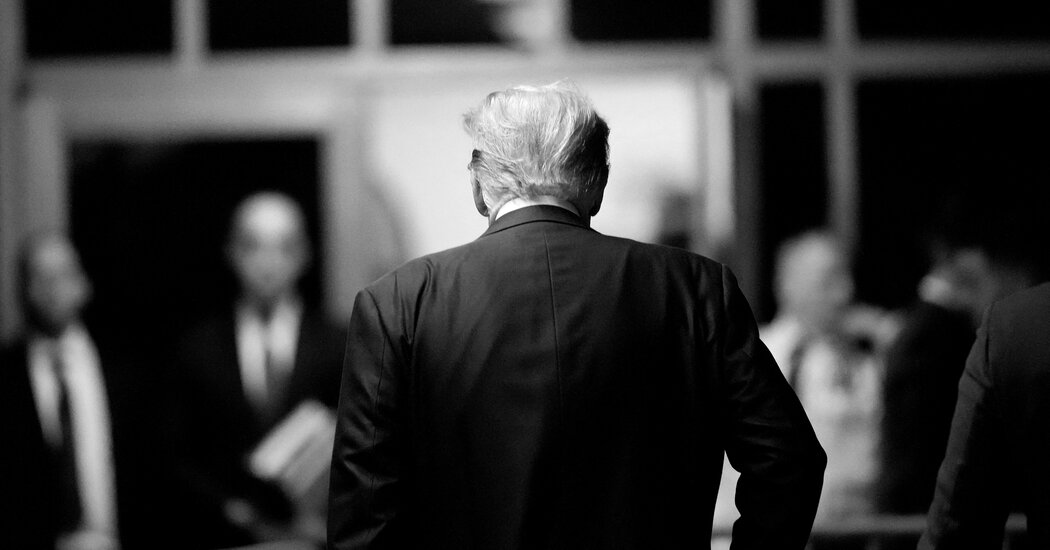
The former and possibly future president of the United States is now on trial in Lower Manhattan, the first criminal prosecution of an American elected to the nation’s highest office. Donald Trump, who relentlessly undermined the justice system while in office and since, is enjoying the same protections and guarantees of fairness and due process before the law that he sought to deny to others during his term.
A jury of Americans will ultimately decide Mr. Trump’s legal fate. It may be the only one of the four criminal cases against the former president that comes to trial before the November election. Though the election interference charges are not the most serious of those he faces, the case will determine whether 12 of his fellow Americans find him guilty of a felony — a result that most voters say they would consider to be serious.
In the first two days of this trial, Mr. Trump has offered a defense of himself to the public, in brief appearances between his courtroom table and the television cameras: He portrays himself as a victim of an unfair and politically motivated prosecution. That defense is built on lies. Mr. Trump is no victim. He is fortunate to live in a country where the rule of law guarantees a presumption of innocence and robust rights for defendants.
A guiding principle of the American experiment is that the law applies to everyone equally. At the same time, prosecuting any current or former elected official requires vigilance against bias and awareness about how the case will be perceived by the public. For this reason, judges and prosecutors have an obligation to hew to stringent standards of fairness, to reduce the risk that they appear to be interfering in electoral politics by using criminal cases to damage or favor one candidate over another.
The former president refers to the four prosecutions he faces as “witch hunts” motivated by partisanship and part of a nefarious scheme to keep him from returning to the White House. He has repeated this narrative even though the prosecutions have been brought by different prosecutors around the country, and even though different grand juries, each composed of a random selection of regular citizens in different states, handed up indictments that now total 88 felony charges against him.
In the weeks leading up to the start of this trial, Mr. Trump has argued, dishonestly, that the judge and the prosecutor have treated him unfairly, and that it will be impossible for him to get a fair trial in Manhattan because New Yorkers are biased against him. But the opening days of the trial, devoted to jury selection, have already demonstrated the great care and respect with which everyone involved in the trial, except for Mr. Trump, has treated the process. Joshua Steinglass, a member of the office of the Manhattan district attorney, Alvin Bragg, told potential jurors on Tuesday that the case “has nothing to do with personal politics.”
This post was originally published on this site be sure to check out more of their content.






